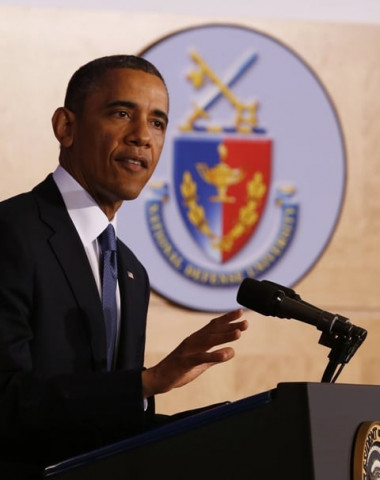Drone drift
The truth is that had the state done an efficient job, the drone strikes may never have been necessitated.

US President Barack Obama speaks about his administration's counterterrorism policy at the National Defense University at Ft McNair in Washington, May 23, 2013. PHOTO: AFP

President Obama’s words on more controlled use of drones are welcome, but they are simply not enough. The strikes need to be stopped completely — given the deaths of civilians they have caused and the deep sense of outrage they have given rise to. They, of course, also erode Pakistan’s sovereignty. This, too, has been an issue brought up many times at home. The damage inflicted by the drones comes in many forms. But putting emotion aside for a while, we need also to look at reality.
The truth is that had the state done a more efficient job, the drone strikes across the north may never have been necessitated. We need to consider why various key militants, including the late Baitullah Mehsud, were reached by drones, obviously on the basis of very sound intelligence, but could not be captured by our own apparatus. Other examples exist, too. Yes, the drone attacks must stop; the death and terror they bring must end. We hope President Obama will recognise this and accept that limiting strikes is not enough. But to make this more likely we must also consider our policy at home and ensure that at our own end, we are doing everything possible to remove the militants from our midst, ensuring no other force feels the need to do this for us.
Published in The Express Tribune, May 25th, 2013.














COMMENTS
Comments are moderated and generally will be posted if they are on-topic and not abusive.
For more information, please see our Comments FAQ